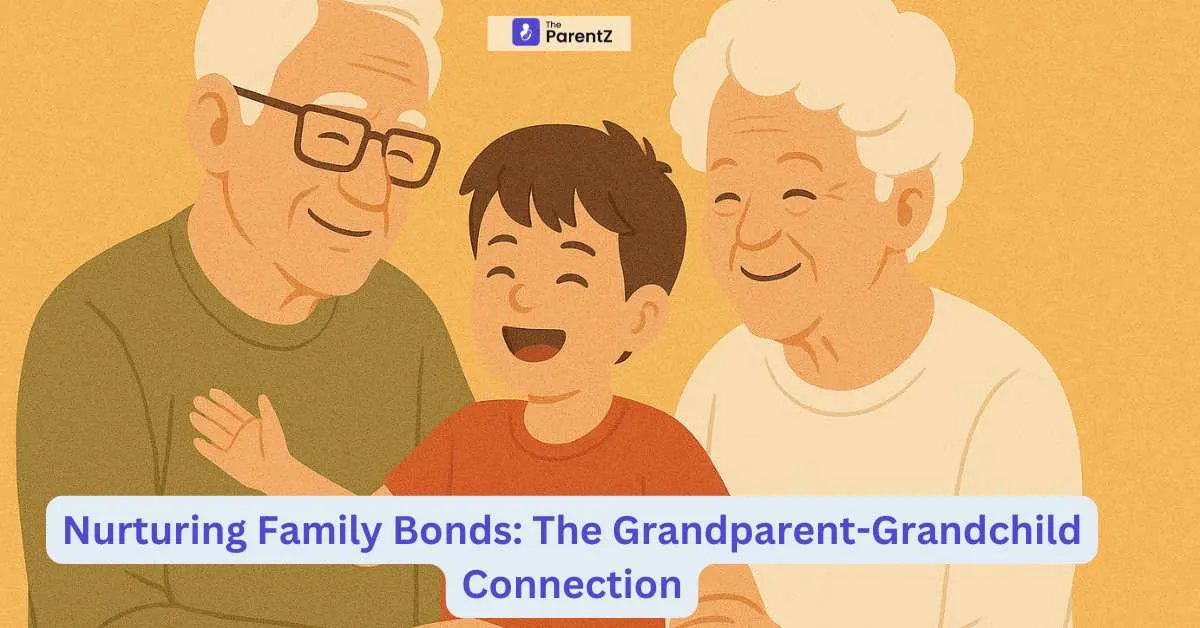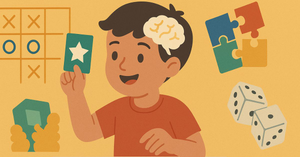Introduction: The Invisible Thread That Binds Generations
Family is more than just blood relations—it is a web of emotions, values, and memories that shape us in ways we often don’t realize. Among the most profound yet sometimes overlooked relationships is the bond between grandparents and grandchildren.
In today’s fast-paced, technology-driven world, where parents often juggle work and responsibilities, grandparents step in as the silent pillars of wisdom and love. But why does this bond matter so much? How does it shape a child’s emotional and social development? Science, psychology, and real-life experiences all point toward one undeniable truth—grandparents play a crucial role in nurturing family bonds.
Why Grandparents Are More Than Just ‘Elders’?
1. The Emotional Cushion: A Source of Unconditional Love
Grandparents offer a kind of love that is free from expectations. Unlike parents, who are often busy setting rules and expectations, grandparents provide a safe emotional space. Children find comfort in their presence, knowing they are loved just for being themselves.
A study published in the Journal of Family Psychology found that children who share a close relationship with their grandparents tend to have lower anxiety levels and better emotional regulation. The reason? The consistent, non-judgmental support that grandparents provide acts as a stabilizing force in a child’s life.
2. A Link to Family History and Cultural Roots
In a world that is increasingly disconnected from tradition, grandparents serve as a bridge between the past and the present. They pass down family stories, cultural values, and even small traditions that might otherwise fade away.
For example, a simple bedtime story about how the family survived tough times or how values like honesty and hard work shaped their lives can leave a lasting impression on young minds. This transfer of wisdom helps children develop a strong sense of identity and belonging.
3. Teaching Life Lessons Through Experience
While parents teach discipline and structure, grandparents teach patience, resilience, and perspective. Having lived through wars, economic downturns, and personal hardships, their guidance comes from real-life experience rather than theoretical advice.
A child upset about failing a test may receive immediate comfort from a grandparent who shares their own struggles with failure, emphasizing that setbacks are temporary and perseverance is key.
The Science Behind the Grandparent-Grandchild Bond
1. Psychological Benefits: A Natural Stress-Reliever
Researchers at Boston College found that emotional closeness between grandparents and grandchildren significantly reduces depressive symptoms in both. The study highlights that just spending time together, sharing meals, or even engaging in simple conversations can improve emotional well-being.
2. Cognitive Development and Academic Growth
Many parents underestimate how much children learn from their grandparents. From improving vocabulary through storytelling to enhancing problem-solving skills by listening to life experiences, grandparents contribute to cognitive development in ways schools cannot.
A Harvard University study found that children who frequently interact with their grandparents tend to develop better communication and comprehension skills, leading to improved academic performance.
How Parents Can Strengthen the Grandparent-Grandchild Relationship?
1. Encourage Meaningful Conversations
In today’s digital age, face-to-face conversations are becoming rare. Encourage your child to spend quality time with their grandparents—whether it’s through storytelling sessions, discussing historical events, or simply talking about their daily experiences.
2. Create Shared Activities
Bonding doesn’t have to be forced—it can happen naturally through shared activities like:
- Cooking a family recipe together
- Gardening or planting trees
- Playing board games or simple outdoor activities
- Learning traditional arts, crafts, or music
3. Digital Connection for Long-Distance Grandparents
Not every child has the privilege of living close to their grandparents, but technology can help bridge the gap. Regular video calls, voice notes, and even handwritten letters can help maintain emotional closeness, despite physical distance.
The Role of Grandparents in a Child’s Social Development
1. Building Empathy and Emotional Intelligence
Children who grow up close to their grandparents tend to develop higher levels of empathy. The intergenerational bond helps them understand different perspectives, making them more compassionate and emotionally intelligent individuals.
2. Learning Patience and Gratitude
Unlike today’s instant-gratification culture, grandparents instill patience and gratitude. Their stories of hardships and perseverance teach children that good things take time and that gratitude for small joys leads to lasting happiness.
3. Encouraging a Sense of Responsibility
Grandparents often need care and support as they age, giving children a natural opportunity to develop a sense of responsibility. Helping their grandparents with small tasks—like bringing them water, assisting with technology, or simply spending time listening—instills kindness and care in young minds.
Conclusion: The Legacy of Love and Wisdom
The bond between grandparents and grandchildren is not just a sentimental idea—it is a powerful force that shapes the emotional, social, and cognitive development of a child. Parents play a crucial role in nurturing this connection, ensuring that their children benefit from the wisdom, love, and experiences of the older generation.
At the heart of it all, grandparents are not just family members—they are storytellers, mentors, protectors, and lifelong friends. Their love leaves an imprint that lasts far beyond their years, creating a legacy that strengthens family ties for generations to come.
So, let’s make time for grandparents. Because in the end, the best gift we can give our children is the gift of strong family bonds.








Be the first one to comment on this story.